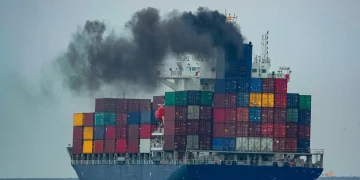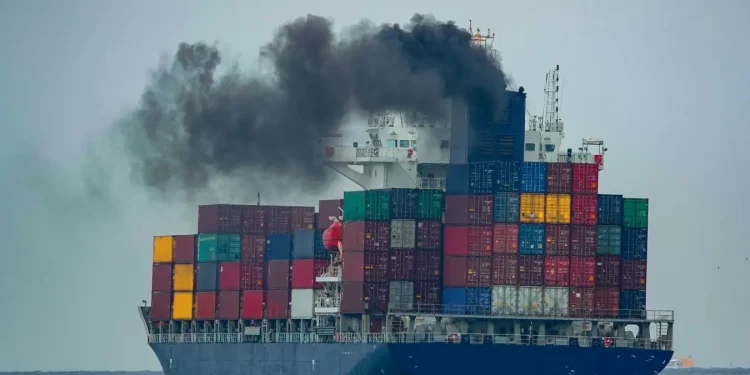By Maria Kalamatas | May 7, 2025
Copenhagen, DENMARK —
In the race to decarbonize supply chains, logistics companies are learning a hard truth in 2025: carbon offsets are no longer enough. Under pressure from regulators, clients, and the public, the industry is shifting from symbolic gestures to quantifiable impact.
“Buying credits isn’t a climate strategy—it’s a delay tactic,” said Jesper Holm, Head of Sustainability at NorthNordic Freight. “The logistics sector has to show actual reductions, not just future intentions.”
From pledges to proof
The pressure to decarbonize is no longer voluntary. The European Union’s Corporate Sustainability Reporting Directive (CSRD), effective since January 2025, now requires detailed disclosures of Scope 1, 2, and 3 emissions, including indirect impacts from subcontractors and outsourced services.
For logistics providers, that means measuring everything—from the carbon output of their trucks to the emissions generated by upstream packaging manufacturers.
Major players like Maersk and Kühne + Nagel are responding with real-time emissions dashboards, using blockchain-backed freight visibility and AI-powered analytics.
“It’s not enough to say you’re carbon neutral,” Holm said. “You need to show your math.”
The limits of offsets
The voluntary carbon market is also facing turbulence. Offset prices have surged by 40% since late 2024, driven by global demand and growing scrutiny over quality.
Environmental auditors are questioning the long-term impact of many popular offset programs—from forest conservation to solar panel donations—especially when tied to companies with no tangible emissions reduction elsewhere.
“Offsets might ease your conscience,” said Camille Rousseau, Director of Compliance at GreenFleet Advisors, “but they won’t satisfy a client that needs certified net-zero logistics for their own ESG audits.”
What’s working: action over abstraction
Across Europe and Asia, logistics firms are pivoting to direct reduction strategies. Among the most adopted in 2025:
•Electrifying last-mile fleets
•Using sustainable aviation fuels (SAF) on core air lanes
•Transitioning from air freight to rail where feasible
•Building solar-powered warehouses with low-energy refrigeration
•Auditing and co-financing green upgrades among subcontractors
In France, Collis Vert Logistics launched a shared financing model with its top five haulers, subsidizing electric truck purchases and investing in local clean energy grids.
A new era of accountability
With ESG reporting becoming legally enforceable, logistics leaders are realizing that carbon accounting isn’t just a compliance issue—it’s a reputation issue. Stakeholders, media, and investors are paying close attention.
“Greenwashing is no longer a PR risk—it’s a liability,” Holm warned. “If your reductions aren’t real, someone will expose you. And that exposure now comes with financial consequences.”
ADVERTISEMENT























